
OR
#PrivateSector’sVoice
Nepal Investment Summit 2024: Private Sector's Voice
Published On: April 28, 2024 09:25 AM NPT By: Republica | @RepublicaNepal

'Nepal stands as an attractive destination for investment'

Kamlesh Kumar Aggarwal
President
Nepal Chamber of Commerce
The investment summit will have a long-term impact, showcasing the possibility and opportunity of investment. The task of elucidating Nepal to investors and enticing them for investment can be accomplished during the investment summit. Its results become evident in the long run, as investors evaluate the development potential of the projects presented at the summit. At present, the risk-bearing capacity of investors has decreased. During such times, investment assumes great importance and necessity. Employment cannot be generated without investment. One notable difference in the third investment summit compared to the previous two is the participation of the private sector as a co-organizer. Investment priority areas have already been identified in the summit.
We believe that the summit will be fruitful for cooperation not only from the government side but also in Business-to-Business (B2B) interactions at the private sector level. Energy, tourism, agriculture, information technology, and other infrastructure sectors have been identified as the best investment sectors. The government has initiated legal reforms to foster an investment-friendly environment. It appears that the government intends to convey to potential investors that the investment environment in Nepal is improving by reforming laws ahead of the investment summit. Additionally, through the summit, the government will commit to investors that it is ready to foster an investment-friendly environment. Since the goal is to lay the groundwork for Nepal as an attractive investment destination, many other positive impacts will gradually emerge after the investment summit.
The government has commenced the process of sovereign credit rating (Sovereign Country Rating) to signal that Nepal has established an excellent investment environment. Three main factors are crucial in attracting foreign investment: easy entry, smooth exit, and an environment conducive to profit repatriation. Investors come here to earn a profit, so creating an environment conducive to repatriating profits earned here back to their country is essential. The conference will witness various agreements and understandings not only between the government and foreign investors but also between the private sector of Nepal and foreign counterparts. Furthermore, the conference holds significance for establishing and expanding relations with investors from different countries. The government has formulated procedures related to the Multilateral Investment Agreement with the investment summit as its target.
‘Nepal offers vast investment opportunities’

Chandra Prasad Dhakal
President
Federation of Nepalese Chambers of Commerce and Industry
The slogan of the investment summit, 'Emerging Nepal,' reflects our national vision. There are opportunities to invest in tourism, infrastructure, energy, agriculture, and technology in Nepal. Strategically, there is an unparalleled investment opportunity in Nepal. The proximity of two powerful economies, China and India, with a market size of more than 2.7 billion people, provides a huge market for Nepal.
There is a significant opportunity in renewable energy in Nepal. India recently signed a power trade agreement to purchase 10,000 MW of power from Nepal. The government also signed a long-term power trade agreement with Bangladesh. The hydropower produced in Nepal has significant business potential in India, Bangladesh, and other South Asian countries. In tourism, Nepal's rich cultural heritage and natural beauty await modern infrastructure, including airports, roads, cable cars, parks, hotels, and resorts, to welcome tourists from all over the world. Growing outbound tourism from India and China has provided opportunities for Nepal's beautiful mountains and snow-capped peaks. ICT is another promising area for investment. With an abundant and youthful workforce and a vibrant entrepreneurial spirit, Nepal is emerging as a thriving hub for ICT business and innovation. Considering the significant gap between demand and available supply of skilled manpower, investment in technical education is another promising sector in Nepal. With many unemployed youth seeking opportunities at home and abroad, establishing technical schools will serve two important purposes: addressing the domestic shortage of skilled labor and helping increase remittance flows as skilled workers migrate abroad.
Nepal's economy has advanced significantly. By 2026, it is poised to become a developing nation. Therefore, there is a need for investment. The government has adopted a business-friendly policy to create an investment-friendly environment. Twelve laws and policies have been amended to foster an investment environment. Acts and laws have been simplified to facilitate foreign investment. In the presence of the prime minister of Nepal, the recently held conferences of the Federation of Nepalese Chamber of Commerce and Industry in New Delhi, Beijing, and Dubai have helped increase investors’ confidence and expand investment in Nepal. The private sector of Nepal is committed to joint ventures in all possible areas.
‘Investment Summit sends a message of hope’

Rajesh Kumar Agrawal
President
Confederation of Nepalese Industries (CNI)
We have approached the investment summit with enthusiasm. Holding such a significant investment summit at a time of economic despair is quite encouraging. We have embraced it positively, hoping that the investment summit will convey a message of hope, especially as domestic industrialists grapple with frustrations due to the economic slowdown. The government aims to attract foreign investment through the investment summit, highlighting several potential sectors for foreign investment such as hydropower, tourism, the service sector, IT, and others. Foreign Direct Investment (FDI) can significantly benefit various sectors.
However, it is essential to understand that investment commitments by foreign investors do not translate into immediate investment; typically, it takes 3-4 years procedurally to establish a project. There should be follow-up from government agencies to understand why committed investments did not materialize. This kind of follow-up has been lacking even after the last two investment summits. Investors come, assess the situation, and then leave. Unfortunately, there has been no effort to follow up with them afterward. Consequently, investors often seek investment-friendly environments in other countries. Therefore, serious consideration is warranted in this regard.
The CNI has already proposed to the Investment Board Nepal the establishment of a separate 'desk' dedicated to attracting investment as well as for follow-up, inquiry, providing necessary documents, and addressing their queries. The government should facilitate foreign investors by creating a conducive environment to protect their investments and formulating appropriate policies to ease repatriation of profits made in Nepal. Similarly, policy stability and political stability should be ensured. Policy changes in the budget every year are not practical. There is a need to improve the tradition of interpreting laws on a case-by-case basis, and we have suggested ways to achieve uniformity in the official interpretation of the law. The CNI is running the 'Make in Nepal Swadeshi’ campaign, with government support. The CNI has been advocating for the formulation of an industrial development strategy to create an environment conducive to producing products to make the country self-reliant where possible. The CNI urges the government to provide facilitation and preferential facilities as policy to make the country self-sufficient after identifying the products that have prospects of production in Nepal, even if it entails increasing customs duties on such goods.
'Foreign investments through a PPP model will drive the country towards prosperity'

Shova Gyawali
President
Federation of Women Entrepreneurs Associations of Nepal
We have observed a lot of hope and potential in this year's investment summit. If timely amendments are made to certain policies to encourage investment in our country, it will undoubtedly make it easier to operate. We, the people, are also contemplating how to proceed financially. A change in policy holds significant potential for our agricultural sector. Similarly, there is a promising potential in herbal products, which are exported from Nepal to third countries including Australia. Likewise, handicrafts, hydropower, green energy, and micro energy also offer similar opportunities. Recently, during my visit to Jumla, I witnessed firsthand how local communities are utilizing micro-hydro systems for electricity. Investing in such areas holds numerous possibilities.
The government aims to export electricity to India and Bangladesh. Achieving this goal can attract foreign investment. Foreign investors will encounter no obstacles if they can invest alongside honest and hardworking Nepali partners. We pride ourselves on our traditional arts, skills, and the mantra of treating guests as gods. Therefore, if we can attract foreign investments through a Public-Private Partnership (PPP) model, the country will move towards prosperity. Nearly 52 percent of working women are engaged in small and medium industries. Investing in women will undoubtedly propel small and medium businesses forward. Particularly, agriculture, herbal products, cotton, aloe, silk, handicraft, fruit businesses, and women-led businesses will directly benefit from this. Therefore, the success of this summit hinges on the government's willingness to revise policies to foster a more business-friendly environment. This represents the great hope and expectation of entrepreneurial women today.
You May Like This

3rd Investment Summit: Govt seeking letters of intent for 20 projects
KATHMANDU, April 28: The government has planned to call for letters of intent for 20 hydropower projects- in the 3rd... Read More...

NRB takes ‘cautious’ approach to fulfill demands of private sector
KATHMANDU, July 24: Nepal Rastra Bank (NRB) has been cautiously flexible towards the private sector through the monetary policy for... Read More...
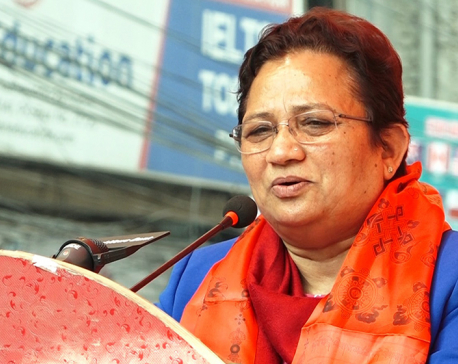
Government ready to allow private sector to trade electricity: Minister Bhusal
KATHMANDU, Nov 16: Minister for Energy, Water Resources and Irrigation Pampha Bhusal has said that the government is ready to... Read More...
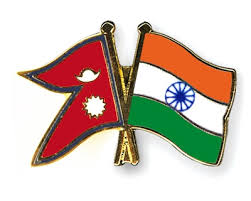

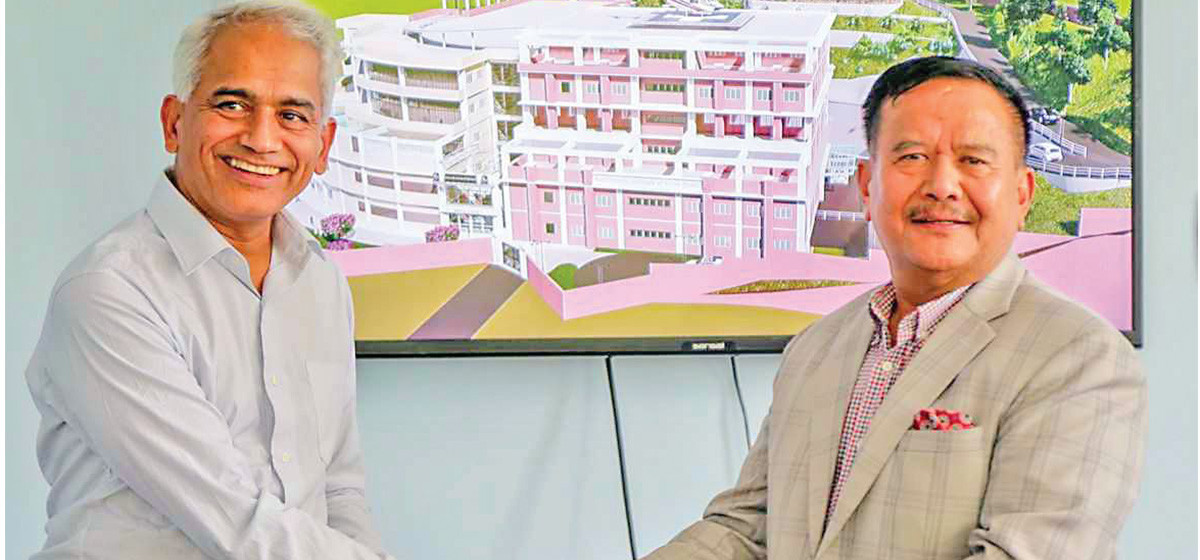


Just In
- Rato Machhindranath Jatra begins (With Photos)
- Bhatbhateni Supermarket Chairman Gurung pledges to contribute Rs 410 million to build a children's hospital
- Gold price surged Rs 2,500 per tola last week
- Sarlahi section of east-west electric railway project witnesses 90 percent progress
- 2.2 km road waiting blacktopping for over 22 months in Kaski
- NEPSE lost 33.73 points, while investors lost Rs 52 billion from shares trading last week
- KMC starts homework to draft policy and program and annual budget for FY 2024/25
- Joint meeting of Federal Parliament to be held on May 14, President to address the meeting




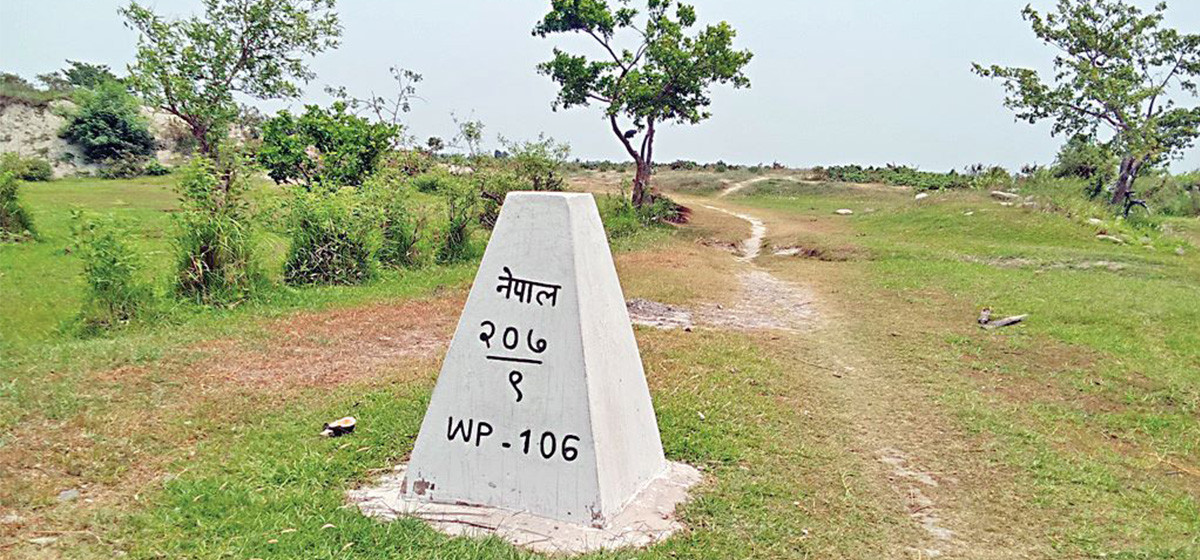

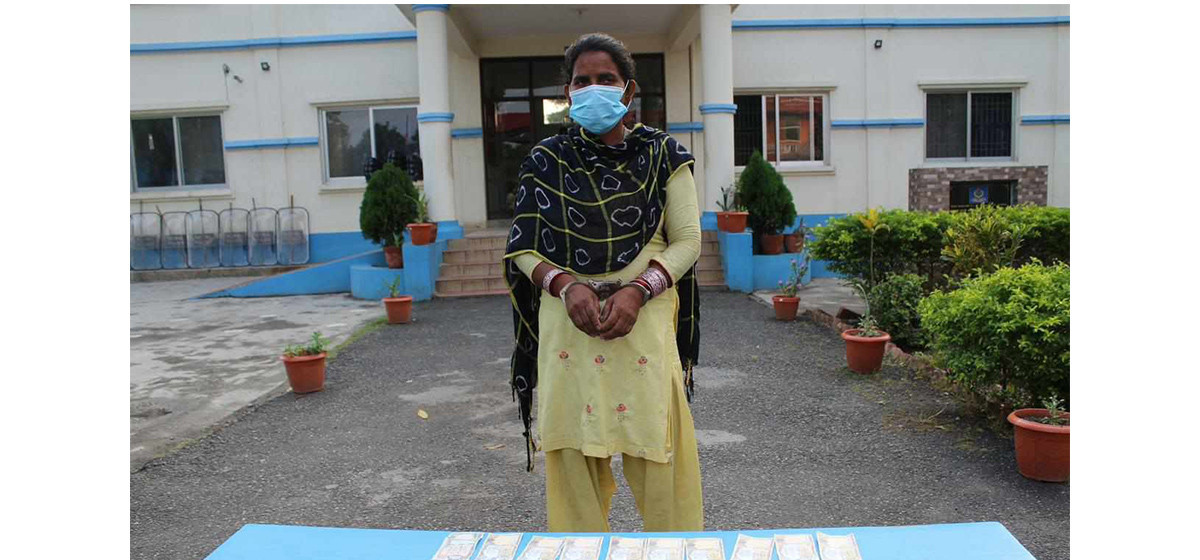

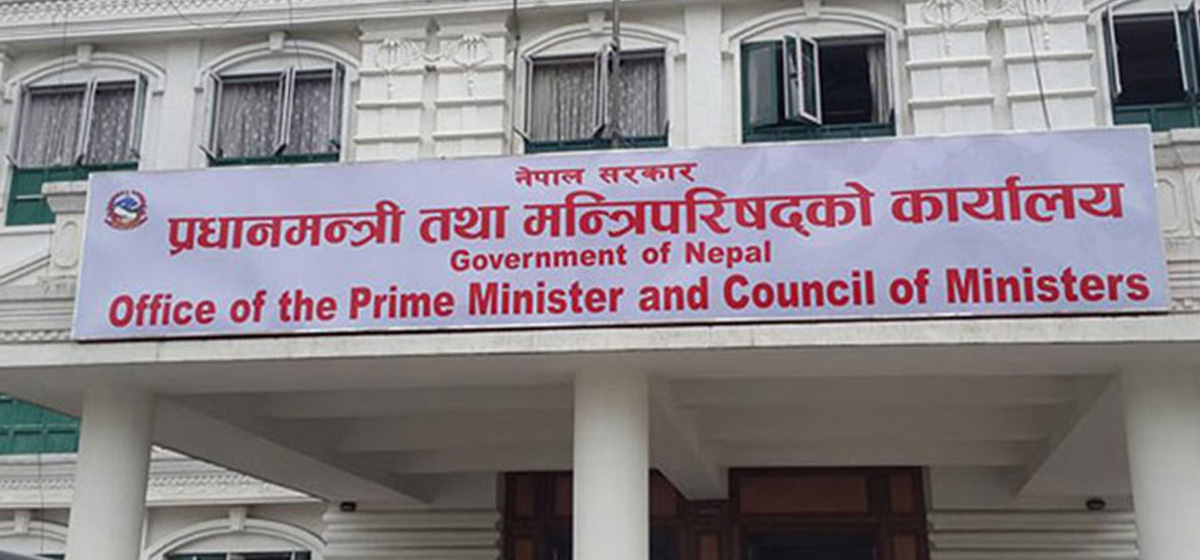
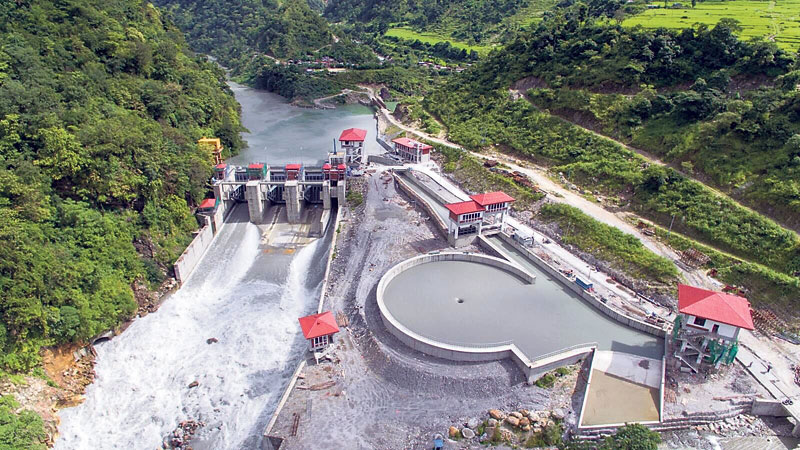
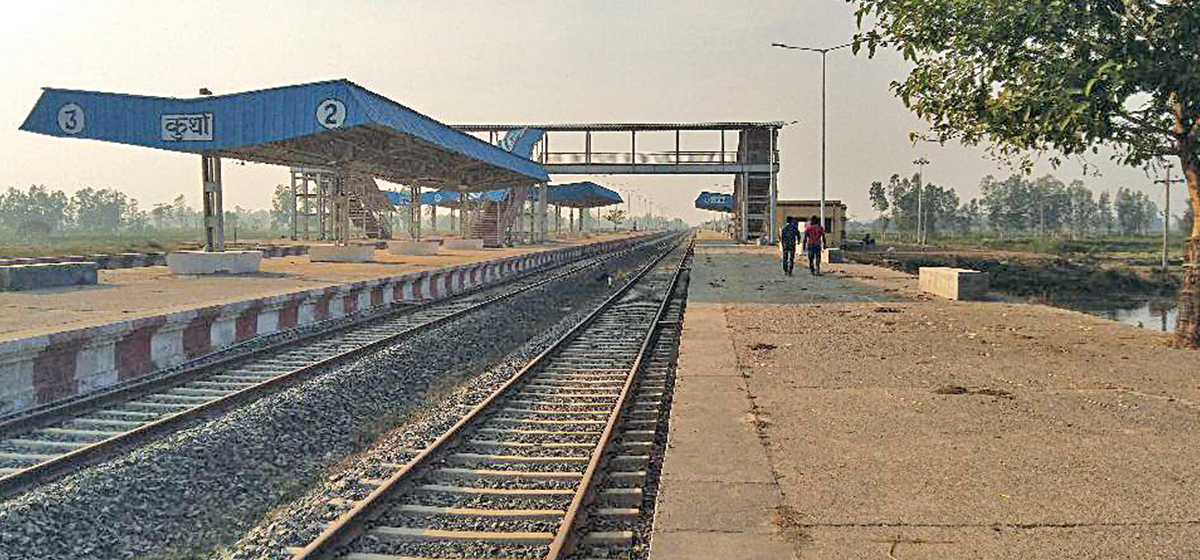
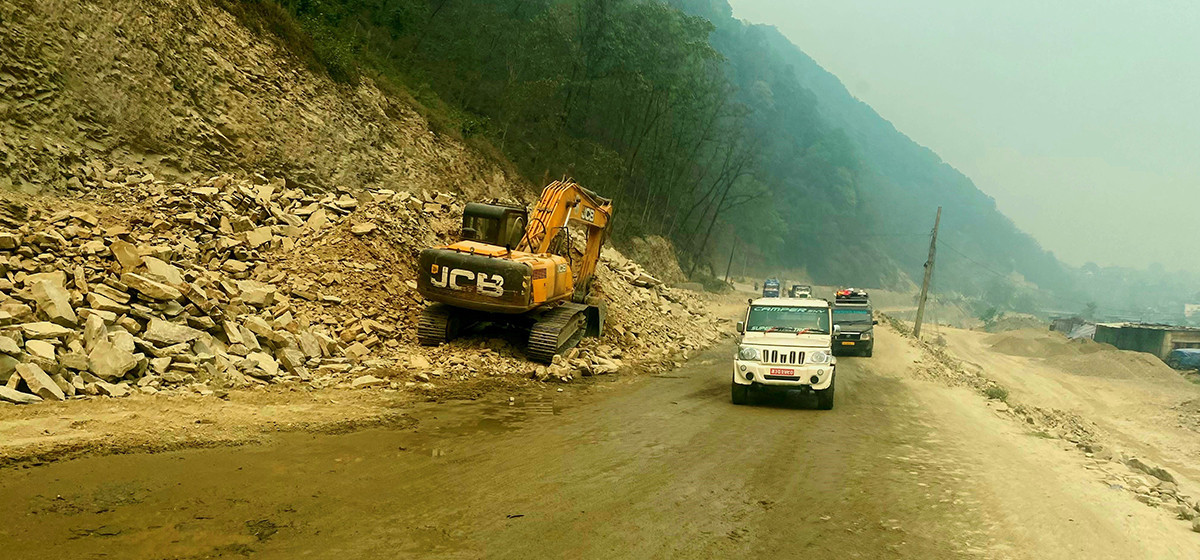

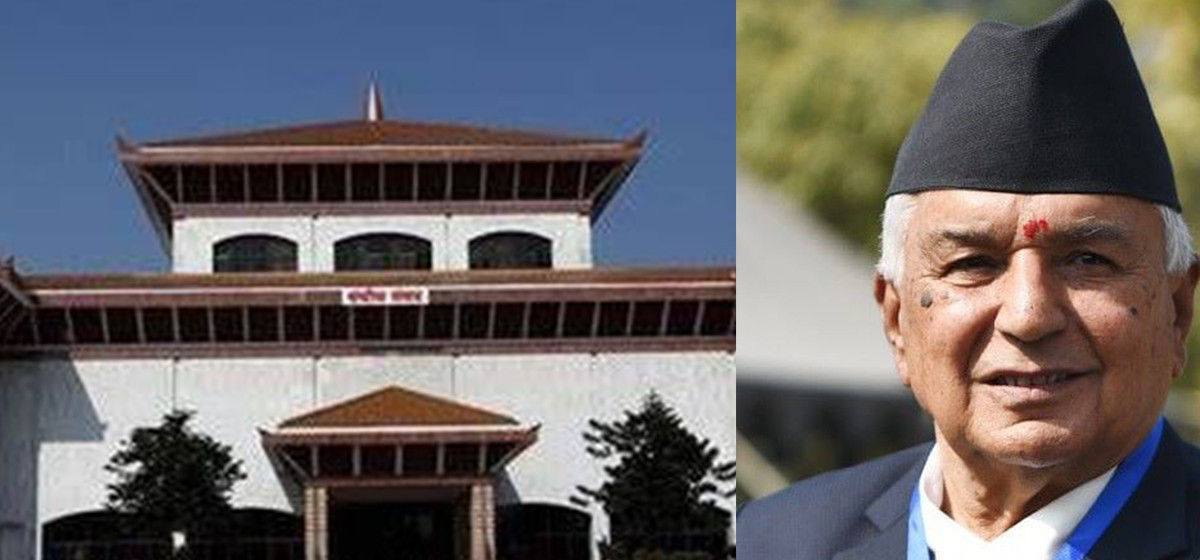
Leave A Comment